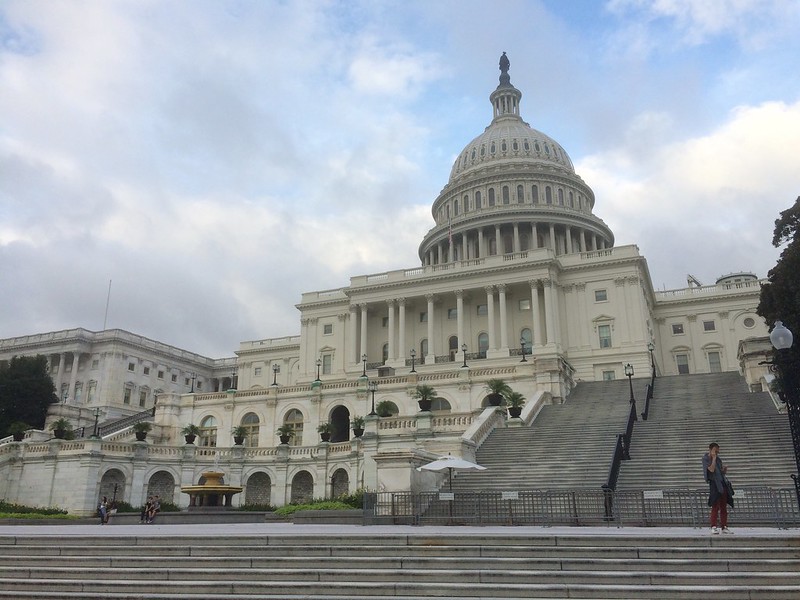
House Republicans on the Ways and Means Committee have released a package of legislation that will help American workers and businesses as we recover from the Coronavirus pandemic.
Within this package is several bills that will help incentivize new investment which will help the American economy recover and create jobs for American workers. As lawmakers continue negotiating the next Coronavirus relief package, they should include these proposals.
Proposals include:
The Accelerate Long-Term Investment Growth Now (ALIGN) Act, introduced by Rep. Jodey Arrington (R-Texas). This legislation would make full business expensing permanent, simplifying the tax code and giving businesses the equivalent of a zero percent rate on new investments.
Full business expensing reduces taxes by allowing businesses to deduct the cost of new investments (machinery, equipment etc.) in the year they are made. Full expensing incentivizes growth, increases productivity, creates jobs, and raises wages. In a post COVID-19 world, expensing will help businesses make vital investments as they seek to bring workers back, onshore manufacturing capabilities, and ramp up production.
The American Innovation and Competitiveness Act, introduced by Rep. Ron Estes (R-KS). This legislation would make R&D expensing permanent to encourage more U.S. investment. If Congress fails to act, this provision will expire at the end of 2021.
Much like full business expensing of new investments, full R&D expensing creates an incentive to increase capital investment, which leads to stronger economic growth, more jobs, and higher wages. If Congress fails to extend this provision, the resulting reduction of R&D spending will directly lead to 23,400 fewer jobs each year in the first five years and almost 60,000 jobs each year thereafter.
The Pushing Research & Development Into Hyperdrive by Doubling the R&D Tax Credit, introduced by Rep. Jackie Walorksi (R-IN). Currently, taxpayers can take a credit for qualifying research and development. Generally, the credit varies between 20 percent, 14 percent, or 6 percent, depending on alternative calculations and on the size of the company.
This legislation doubles each credit, which will encourage more American investment, to help grow the economy. Jobs tied to R&D are quality, high paying jobs. In 2017, the average wage for R&D related jobs was $134,978 – 2.4 times higher than the average wage, according to the Bureau of Labor Statistics. Doubling the R&D tax credit will help create more of these quality jobs.
The Coronavirus Relief for Working Seniors Act, H.R. 6554, introduced by Rep. Jackie Walorski (R-Ind.). Currently, American seniors who qualify for Old Age and Survivors Insurance (OASI) benefits are not entitled to full benefits if they earn income from outside work over the Retirement Earnings Test (RET) threshold. This penalizes seniors who wish to remain in the workforce after they have reached retirement age.
This legislation would temporarily eliminate the penalty on working seniors that earn at or below the taxable maximum ($137,700) in 2020. This would allow beneficiaries who have lost retirement savings as a result of the pandemic to offset those losses by re-entering the workforce without penalty. As the focus remains on safely reopening the economy, this legislation also empowers retirees that wish to help their communities by re-entering the workforce.
The Advanced Medical Manufacturing Equipment Credit, introduced by Rep. Brad Wenstrup (R-Ohio). This legislation establishes a 30 percent tax credit for new investment in advanced manufacturing or machinery used in the U.S. to manufacture drugs, medical devices, or biological products. The credit phases down to 20 percent in 2028, 10 percent in 2029, and phases out in 2030.
If implemented, this legislation will build on the success of the Tax Cuts and Jobs Act by supporting domestic innovation and encouraging American manufacturing. Investment in advanced manufacturing will also create high-paying jobs for American workers.
The Domestic Medical and Drug Manufacturing Tax Credit, introduced by Rep. Brad Wenstrup (R-Ohio). This legislation creates a 10.5 percent tax credit on the net income from the domestic manufacturing and sales of active pharmaceutical ingredients (API) and medical countermeasures.
By lowering the tax burden, this legislation incentivizes increased domestic production of these important medical products and greater preparedness for a future public health emergency. This credit is also limited to the wages allocable to domestic production, which supports good, high-paying American jobs.
Bringing Back American Jobs Through IP Repatriation, introduced by Rep. Darin LaHood (R-Ill.). Currently, American companies with significant overseas operations face a huge tax burden if they want to repatriate and bring their intellectual property (IP) back home.
This legislation would allow American companies that wish to come back to the United States to bring home any IP developed offshore without any immediate tax cost. Since this only applies to IP held on the date of enactment, it encourages companies to bring their IP home in the near future and discourages further migration of high-tech jobs outside the U.S. If implemented, this bill would build on the Tax Cuts and Jobs Act’s promise to restore competitiveness and grow our economy.
See also:
ATR Supports Rep Schweikert’s “Invest Now Act”
ATR Supports The “Small Business Tax Fairness and Compliance Simplification Act”
Ways and Means Republicans Release Healthy Workplace Tax Credit Act
Ways and Means Republicans Release Legislation to Encourage Startup Medical Development

